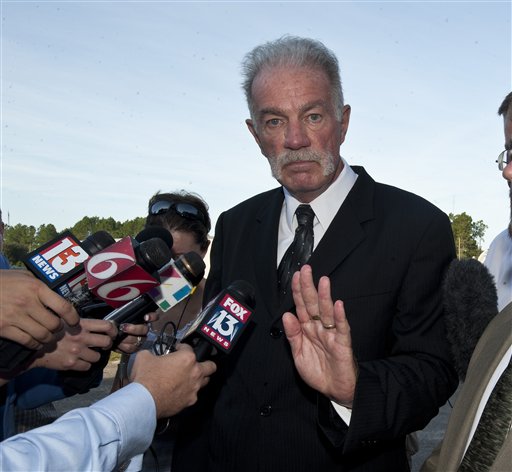A week removed from the ninth anniversary of 9/11, after all the sound and fury has temporarily subsided, we can look back and know that we have just witnessed the realization of historian Daniel J. Boorstin’s most renowned prophecy.
In his 1961 classic, “The Image,” Boorstin famously predicted that real news and serious discourse would eventually be replaced by a “new kind of synthetic novelty” called “pseudo-events” — synthetic for their media-manufactured artificiality, pseudo for their lack of authenticity. Though these contrivances attract attention, Boorstin correctly pointed out that they typically represent no deeper ethos than vainglory.
That, of course, perfectly describes the hullabaloo surrounding Florida pastor Terry Jones and his much-hyped plans to burn the Quran. This hateful act, we were told, would have inflamed anti-Americanism in the Islamic world, potentially provoking a terrorist backlash. So grave was this supposed threat that the major media devoted 24-7 coverage to the controversy; President Obama publicly appealed to the pastor to abstain from creating “a recruitment bonanza for al-Qaida,” and Defense Secretary Robert Gates personally intervened — as if it were a Defcon-1-worthy emergency.
As pseudo-events go, this was a landmark — not for Jones’ abhorrent prejudice (unfortunately, we’ve seen this kind of detestable bigotry before) but for the outsized reaction to one obscure gadfly desperately seeking celebrity. Indeed, the national pandemonium was an emergent symptom of a destructive aneurysm deep within the American cortex — one that has profoundly altered our psychology. Whereas pseudo-events were once seen as cheap attempts to manipulate the public’s perception of significance, the public — in the form of the media, the government and the rapt audience — took part in this pseudo-event, thus manufacturing significance from scratch.
That complicity — both in making this extremist an international star and in subsequently encouraging more such pseudo-events — is this story’s real commentary on the downsides of distorted values, selective outrage and myopic worldviews. A commentary not about Jones, but about us, as just a few comparisons prove.
Consider, for instance, that in the very week the American media, political establishment and electorate fretted over the possibility of Jones enraging the Muslim world, the same media, political establishment and electorate paid no attention to a Guardian of London report finding that “Twelve American soldiers face charges over a secret ‘kill team’ that allegedly blew up and shot Afghan civilians at random and collected their fingers as trophies.” We ignored this, as if the tasteless theater of a single iconoclast in Gainesville is somehow more troubling to Muslims than allegations that their innocent brethren are being hunted for sport in their homeland.
Similarly, as the president took to national television to worry about Jones posing a clear and present danger to national security, he didn’t mention — nor did almost anyone else — that America’s continued military occupation of two Islamic countries might endanger national security in a much bigger way.
And, of course, as pundits and their couch-potato sycophants lit up cable TV and talk radio with arguments about Jones potentially inciting a terrorist blowback against U.S. troops, few bothered noting that the killing of between 600,000 and 1 million Iraqi civilians in our war has probably done far more to prompt such a blowback.
No, we are too mesmerized by the synthetic novelty — too entranced, in this case, by the handlebar mustache and the camera-friendly promise of book burning. We don’t think to ask uncomfortable questions nor do we strive for enlightened perspective. We instead tell ourselves that by joining the cartoonish pseudo-events, we will magically defuse pressing crises — even as our participation in those pseudo-events allows those crises to fester.

